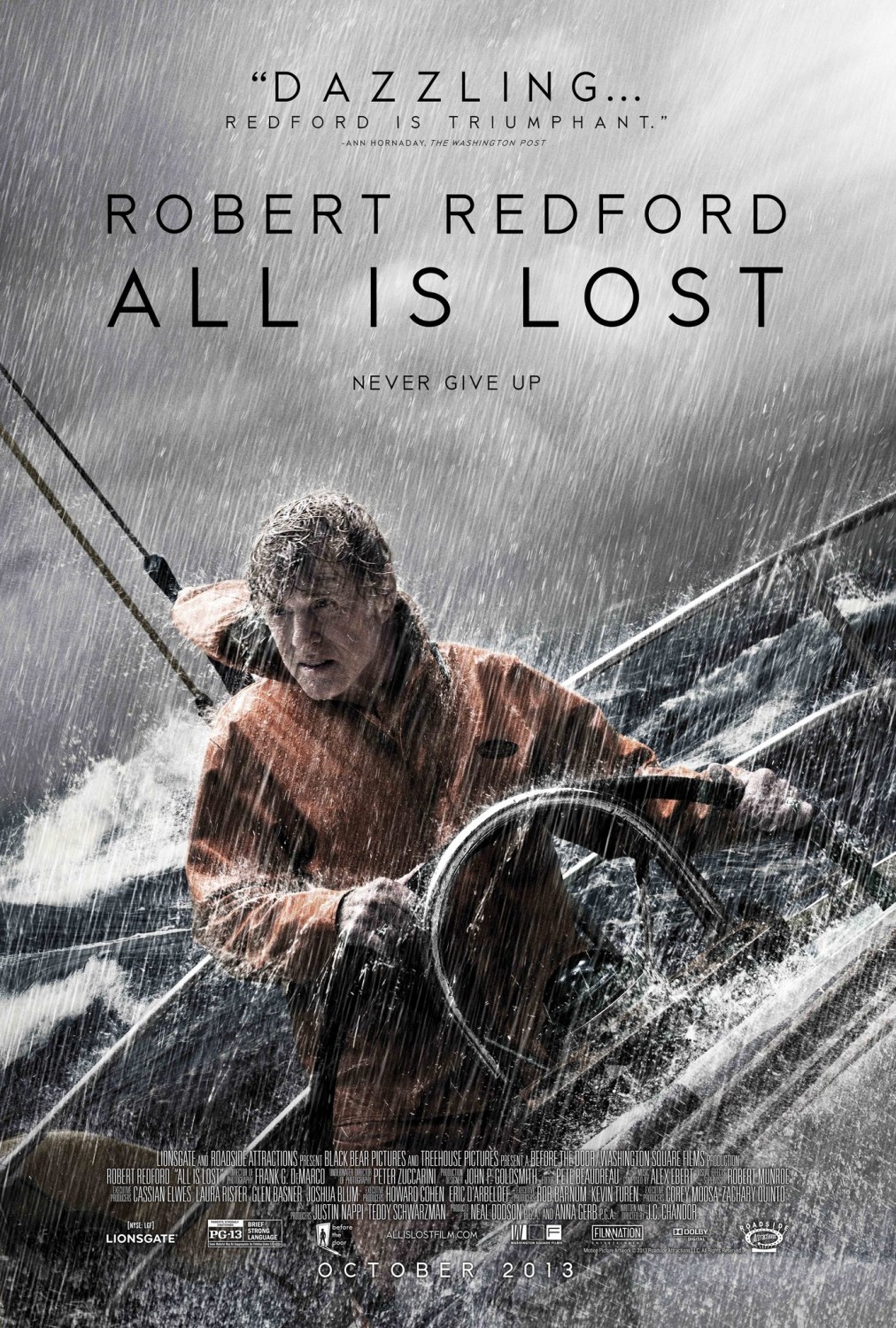All Is Lost
 All Is Lost
All Is Lost
Directed by: J.C. Chandor Cast: Robert Redford Running Time: 1 hr 46 mins Rating: PG-13 Release Date: October 25, 2013 (Chicago)
PLOT: A man (Redford) and his damaged sailboat are stranded in the ocean.
WHO'S IT FOR? Movie fans who like to see something different; those who wish Gravity had even less dialogue, and more grace.
OVERALL
A journey to the end of a man's will to live, All Is Lost stars Robert Redford in a role that stands as his Gran Torino. While he may not have directed the film, All Is Lost is an assertion of his endurance as a Hollywood icon through decades of portraying various dimensions of masculinity. Such a role could only be fulfilled by someone like Redford or Eastwood, as the special impact of this film requires a legend who establishes a full life story within the audience simply with recognition. Regardless of the "Old Man and the Sea" connections that some may make, Redford's sailor is no old man. The credits for All Is Lost agree that he is Our Man.
This is a fully internal performance, Our Man constantly focused as his stoic glance out into the water is like a rock formation against crashing waves. His dialogue totaling no more than three or four passages, Redford's opening-line communication provides the only externalization necessary of sorrow for the world he has abandoned ("I'm sorry" haunts the film to its final frame).
The climactic events of the film, providing clear evidence that a single-character script can prevail through a feature's running time with the right story, ensue procedurally. Small issues challenge Our Man, a stranded survivor with ambiguous origin, but one with prevalent experience in sailing and craftsmanship. The compelling spectacle of the film, before the tempests strike, is to witness his handiness with limited resources. With real danger looming, his self-sufficiency provides a formidable opponent to water's bastard ways, which constantly challenges his instincts as if the ocean were trying to claim him.
Writer/director Chandor and crew create impressive conditions, with physical tolls on Our Man that render psychologically on his audience. The onslaught of weather becomes depressing, wearing the viewer down similarly to any glimpses of potential sanctuary. The film's cinematography captures the tight space of the boat, and similarly the hopeless openness of the ocean, even as Our Man tries to get on course with other ships. In other moments, we are placed into his point of view, and his exhaustion weighs on us. Like with the absolute finest of survival stories, we just want Our Man to sleep, or die.
Alexander Ebert contributes a score that externalizes the pain of All Is Lost, with ominous whistles, flutes, and a chorus that hallows with the extreme wind. The film's only trace of a bleeding heart can be found in Ebert's striking coda "Amen," a chiming piano ballad with swirling arpeggios and reverb vocals, presented in the credits after an exhaling silence.
The stranded survival film, a subgenre that fascinates filmmakers with its specific limited conditions and its subsequent demand for driving storytelling, has been building throughout time to this film. All Is Lost eschews the dramatic and stylistic weight that has prevented predecessors from fully actualizing their experiences of isolation and desperation.
Comparisons aside, Chandor's second film is an impressive move forward from his previous (and vastly different) Margin Call. With their own challenging conditions, Chandor and Our Man remarkably contemplate whether the essential element in opposing our tempests is the endurance of physical condition, or that of the spirit.
FINAL SCORE: 9/10